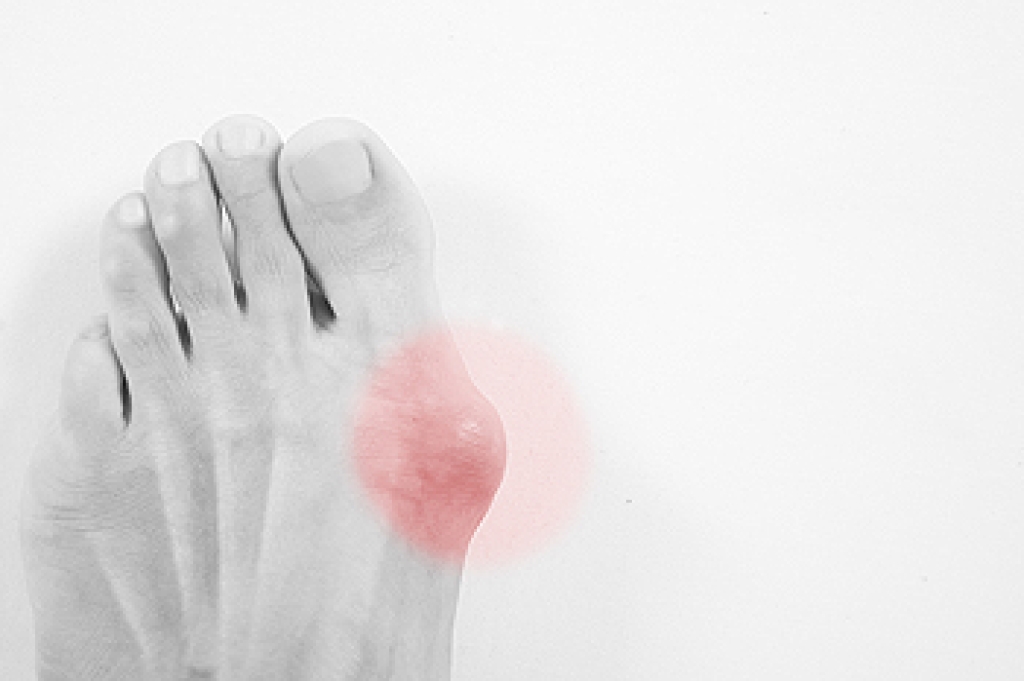
A bunion is easy to notice. It is a hard bump on the side of the big toe and will get larger if steps are not taken to reduce it. A bunion generally occurs from wearing shoes that have little room in the toe area, such as high heels. Frequently wearing these types of shoes may cause the other toes to shift together. Corns and calluses may form on top of the toes as they touch the shoe. Bunions can also happen from genetic reasons, or from existing arthritis. The symptoms that are commonly associated with bunions can include pain and stiffness in the big toe, and the gait, or walking style can be affected. Temporary relief may be found when shoes are purchased to accommodate the bunion. Some people find it can help to wear a protective pad on top of the bunion, in addition to taking over-the-counter pain medicine. If you have developed this type of foot condition, it is suggested that you contact a podiatrist who can offer you treatment options, which may include surgery for permanent relief.
If you are suffering from bunions, contact one of our podiatrists of Comprehensive Foot & Ankle Center. Our doctors can provide the care you need to keep you pain-free and on your feet.
What Is a Bunion?
A bunion is formed of swollen tissue or an enlargement of boney growth, usually located at the base joint of the toe that connects to the foot. The swelling occurs due to the bones in the big toe shifting inward, which impacts the other toes of the foot. This causes the area around the base of the big toe to become inflamed and painful.
Why Do Bunions Form?
Genetics – Susceptibility to bunions are often hereditary
Stress on the feet – Poorly fitted and uncomfortable footwear that places stress on feet, such as heels, can worsen existing bunions
How Are Bunions Diagnosed?
Doctors often perform two tests – blood tests and x-rays – when trying to diagnose bunions, especially in the early stages of development. Blood tests help determine if the foot pain is being caused by something else, such as arthritis, while x-rays provide a clear picture of your bone structure to your doctor.
How Are Bunions Treated?
- Refrain from wearing heels or similar shoes that cause discomfort
- Select wider shoes that can provide more comfort and reduce pain
- Anti-inflammatory and pain management drugs
- Orthotics or foot inserts
- Surgery
If you have any questions, please feel free to contact our offices located in Lehigh Ave and Nazareth Hospital in Philadelphia, Collegeville Darby, and Langhorne, PA . We offer the newest diagnostic and treatment technologies for all your foot care needs.
